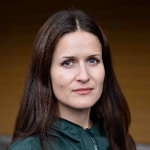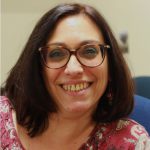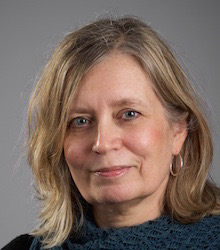
Research objectives and findings
The objective for this work package has been to explore how music teacher education can provide educational spaces that encourage critical reflection and promote future music teacher agency. To prepare music teachers and educators for the future, we consider preservice teacher involvement and open-ended educational forms necessary, another precondition is the educators’ willingness to step out of their comfort zone. Essential then, is to “remix the classroom” (Allsup, 2016) so that preservice music teachers’ voices could be heard, and their competence recognized. To promote future music teacher agency, it is crucial that the preservice teachers see themselves as co-constructors of their own education.
One sub-study investigated preservice music teachers’ (PMTs) experiences of agency in their teaching practicum in schools. Focus group interviews with one group of PMTs and observations of their practicum teaching revealed that spaces for agency were quite limited. One of the involved school-based mentors provided a limited space for the PMTs to make their own choices and deciding the content and forms of the classroom activities. While the other mentor was more flexible, the PMTs only to a small degree took the opportunity to experiment with content and forms, and instead limited themselves adapting pre-existing plans (Bjørnevoll, 2022). Further, there seemed to be limited opportunities for the PMTs to engage in practicum conversations with their mentors to critically reflect on their own and their peers’ music teaching. The school-based mentors set the agenda and talked most of the time during these conversations. Consequently, there seems to be a need for more ‘radical open listening’ (Haynes and Murris, 2011) among school-based mentors in music teacher education.
Another sub-study investigated how to develop spaces for PMTs’ critical reflexivity and agency by means of participatory action research at two teacher education institutions in Norway, including four groups of PMTs and researchers who were also teacher educators The PMTs were challenged to take part in developing their education by addressing needs, sharing dreams, and suggesting solutions. The findings show that the PMTs positioned themselves in three ways; 1) as novices, 2) as not yet independent, and 3) as resource persons. In all three positions the students acted agentively, some by making choices, expressing wishes for their education and showing resistance towards the action research, others by welcoming the ideas of the action research and suggesting ways ahead for music teacher education (Onsrud et al., 2022). Focusing on the teacher educators’ role in facilitating student participation and student voice, the researchers also identified how the teacher educators take up roles and struggle with breaking the student–teacher dyad. The combination of participatory action research, self-study and narrative analysis have provided self-reflexive insight into the mechanisms at play when stepping out of the comfort zone as music teacher educators (Fredriksen et al., 2023). The researchers suggest, in line with Freire’s concept of ‘naming the world’, that students’ articulated reflections during the participatory action research represent important steps in their progress towards becoming professional music teachers. From our experiences, tolerating and enduring discomfort of loosening up the student–teacher dyad benefits development of student agency and critical reflection (Rinholm et al., in press)
See all FUTURED publications here
Researchers

Western Norway University of Applied Sciences
WP2 leader and researcher

Oslo Metropolitan University
WP2 researcher

Oslo Metropolitan University
WP2 researcher

WP2 guest researcher

WP2 guest researcher

Western Norway University of Applied Sciences
WP2 researcher